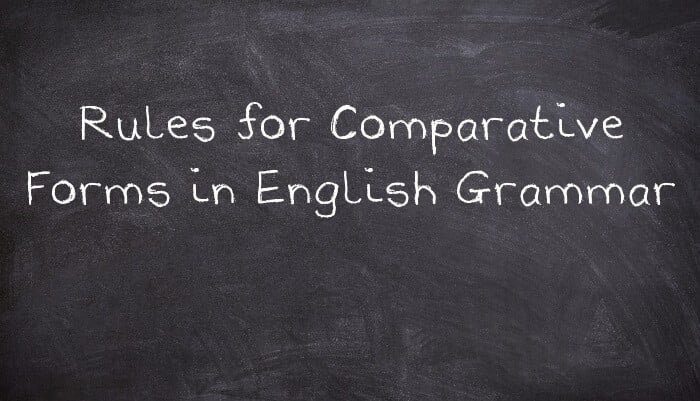Rules for Comparisons
The rules governing comparisons in English grammar may seem simple, yet even native speakers often find themselves making mistakes. In this article, we will delve into the intricacies of comparative forms and provide you with a thorough understanding of how to correctly express comparisons. By the end, you will possess the knowledge to navigate through these structures with confidence.
Three or More Syllable Adjectives
When dealing with adjectives consisting of three or more syllables, we employ the comparative form by placing 'more' in front of the adjective.
Example: The luxurious car became even more expensive after the recent upgrades.
Two Syllable Adjectives (Not Ending in 'y')
For two-syllable adjectives that do not end in 'y', we create the comparative form by adding 'more' before the adjective.
Example: Although the task seemed simple, it became more complicated as we progressed.
Two Syllable Adjectives (Ending in 'y')
When dealing with two-syllable adjectives that end in 'y', we replace the 'y' with 'ier' to form the comparative form.
Example: She became happier when she received the news of her promotion.
One Syllable Adjectives (Ending in One Vowel and One Consonant)
For one-syllable adjectives ending in one vowel and one consonant, we double the consonant and add 'er' to create the comparative form.
Example: The small town grew bigger after the opening of a new shopping center.
Other One Syllable Adjectives
In most cases, one-syllable adjectives simply require the addition of 'er' to form the comparative form.
Example: He felt taller after wearing high-heeled shoes.
Exceptions:
-
Good --- Better
Example: I am confident that the new plan is better than the previous one. -
Bad --- Worse
Example: The weather conditions are worsening, so it's best to stay indoors. -
Far --- Further/Farther
Example: The bus station is further/farther away than I anticipated. -
Old --- Older/Elder
Example: My older brother is quite skilled in playing the piano. -
Little --- Less
Example: I had less time to complete the project than I had anticipated.
Adverbs in Comparative Form
In general, when forming the comparative form of adverbs, we add 'more' before the adverb.
Example: She walked more slowly as the rain poured down.
Exceptions:
-
Early --- Earlier
Example: Please arrive earlier than the scheduled time. -
Late --- Later
Example: The meeting has been rescheduled to a later time. -
Fast --- Faster
Example: The cheetah runs faster than any other land animal. -
Hard --- Harder
Example: She studied harder for the upcoming exam. -
Near --- Nearer
Example: The hotel is located nearer to the airport than any other in the city. -
Soon --- Sooner
Example: I hope to see you again sooner rather than later.
Summary
By mastering the rules outlined above, you will be equipped to express comparisons accurately and effectively in your English writing and communication. Remember to practice these forms regularly to ensure they become second nature.
